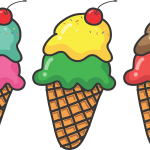3 Somethings About Serotonin That Are Bad by Joan Kent, PhD
Serotonin is generally considered a “good” neurochemical. Some have gone so far as to call it, somewhat mistakenly, the Happiness Hormone.
Let’s take a look at a few drawbacks of serotonin. This list is not meant to be exhaustive, just illustrative of a few ways serotonin can be an inconvenience, or even a detriment.
- Lethargy
It’s pretty much a linear function: When insulin is released, tryptophan is transported to the brain, and serotonin is produced. The more insulin someone secretes, the more tryptophan reaches the brain, and the more serotonin is synthesized.
Some people are carbohydrate sensitive, and they secrete high insulin when they consume certain carbohydrates. This is often related to genetics. That high insulin can lead to greater tryptophan transport and result in greater serotonin production.
Although serotonin induces relaxation, high levels of it can make us lethargic and lazy.
- Hypertension
Serotonin is a vasoconstrictor, so it can contribute to high blood pressure. Once again, it is part of the same linear function. To the degree that someone secretes high levels of insulin, that high insulin probably results in high serotonin.
People who are young, not overweight, and don’t eat a high-sodium diet may still have high blood pressure. And it may be diagnosed as “idiopathic” if the doctor is not looking at such factors as genetic carb sensitivity and the specific carb content of the diet.
- Blocked endurance
We are quite accustomed to hearing about serotonin’s benefits, for example that exercise triggers serotonin. Yet for any athletic activity that involves endurance or high-intensity effort, elevated serotonin is not a good thing.
It brings on fatigue and makes us want to quit the workout sooner. This effect has been shown in animals, as well as in athletes.
How To Optimize Your Serotonin
- Eat protein with each meal. This will provide tryptophan for when you need and want serotonin. But it will also block serotonin and prevent overly high serotonin levels.
- Avoid “big insulin” triggers. Stay away from sugar and other junky carbs, like white flour. Don’t combine “big insulin” carbs with saturated fats (like butter on potatoes or on white bread). The combination leads to even greater insulin release.
- Avoid starches alone. Manage the insulin/serotonin impact of your meals by eating protein, healthful fats, and vegetables, too.
- When you eat starches, focus on healthful ones to prevent sugar cravings. Examples are lentils, quinoa, squash, sweet potatoes, brown rice, and turnips.
Bottom Line
Serotonin can be key in managing moods, workouts, appetite, food preferences, blood pressure, sleep, and cravings. Remember that managing serotonin may involve keeping the levels down at times. Raising serotonin and blocking it are both within your control.
For help with any of these, visit LastResortNutrition.com and grab your free Brain Balance Consult. Find out how easy it is to make small changes that translate to health and food freedom.
Brought to you by Dr. Joan Kent, best-selling author of Stronger Than Sugar.



